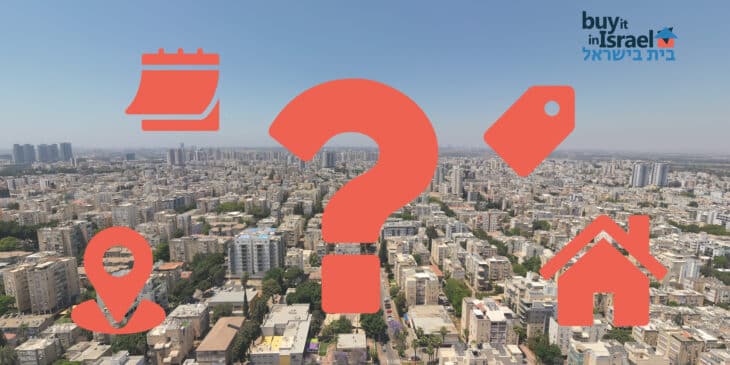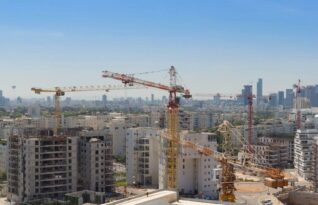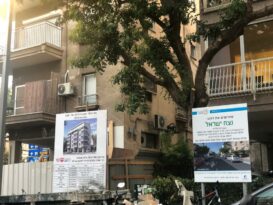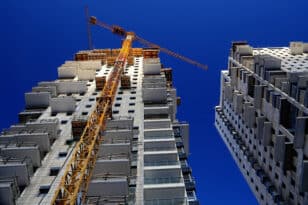Ma nishtana halaila hazeh? Why is this night different from all other nights? On Seder night, we gather around the table and ask four ancient questions — not because we don’t know the answers, but because asking deepens our understanding, connects us to our past, and guides us toward our future. And in that spirit, this Pesach, as millions of Jews around the world consider their connection to Israel — emotionally, spiritually, and practically — we pose four contemporary questions. Not about matzah and maror, but about something else entirely: buying property in Israel.
1. Will prices in Israel ever come down?
Ah, the eternal question. The truth is — no one knows for sure. But history offers clues. Over the last few decades, despite global recessions, wars, and political instability, housing prices in Israel have continued to rise. Why? A powerful combination of fundamentals: a chronic shortage of land, rapid population growth, consistent immigration (Aliyah), growing demand for earthquake-resistant and protected homes, and — since October 7 — significant construction delays. All of these forces have pushed prices upward. The result? A long-term upward curve that rarely dips.
But it’s not all one-directional. Today, there’s some uncertainty in the market. Prices are high. Interest rates remain elevated. Construction costs are climbing, largely due to labor shortages. The war has slowed decision-making, while recent regulations from the Bank of Israel have limited developers’ ability to offer financial incentives—leading to an anticipated reduction in demand in some sectors.
At the same time, we’re seeing a growing supply of new housing units, and in some areas, a concern about potential oversupply. All of this could put downward pressure on prices, especially in peripheral or oversaturated areas.
That said, in high-demand neighborhoods — the Jerusalems, the Tel Avivs, the Modi’ins — significant drops remain unlikely. Real estate in Israel is hyper-local. It’s not a national market; it’s lots of micro-markets. So the better question might be: where might prices soften, and how can I take advantage of that?
2. Where is the best place to buy property in Israel?
Another classic — and just like with the Four Sons, there’s no one-size-fits-all answer. The “best” place depends entirely on who’s asking, and why. Are you looking for a vacation home? Planning to make Aliyah in a few years? Buying for your kids or grandchildren? Investing for long-term growth?
For many English-speaking buyers, the perennial favorites remain strong:
- Jerusalem — rich with history and holiness, neighborhoods like Baka, the German Colony, and increasingly Arnona are in high demand.
- Tel Aviv — for those who want beachside city life, vibrant culture, and walkability.
- Netanya — a coastal gem with a strong Anglo community and more competitive prices.
- Modi’in — modern, green, and family-friendly, with great schools and outstanding accessibility to both Tel Aviv and Jerusalem.
- Beit Shemesh — especially attractive for religious families seeking a strong community feel.
- Carmei Gat and Ashkelon — rising stars, offering great value and growing populations.
But there’s a quiet revolution happening: Israel’s public transportation infrastructure is undergoing massive expansion. New train lines, light rail systems, and improved highways are making previously “far” places feel much closer. Peripheral towns are becoming viable options for families, retirees, and investors alike. And with more space, better prices, and less congestion, these areas offer something that central Israel often can’t: breathing room.
So, the best place to buy? It’s not just about geography — it’s about lifestyle, values, timing, and vision.
3. Should I buy new or pre-owned?
This question gets to the heart of the home-buying experience. Both options offer distinct advantages — and different kinds of risk.
Buying pre-owned means buying what you can see. The property exists. You can walk through it. You know who your neighbors are. You get the keys (relatively) quickly. The location is established, and you’re (usually) not living on a construction site.
But new construction offers its own appeal. You get a brand-new, modern, well-planned home — often with better layouts, higher construction standards, a warranty, and earthquake resistance. You usually pay in stages, allowing for more flexible cash flow. In many cases, the price per square meter is lower than that of pre-owned in the same area.
Of course, you’ll have to wait — sometimes years. You’ll need to trust the developer and stay on top of every stage. And while many new areas become thriving neighborhoods, others take time to come alive.
Your decision will come down to your timeline, budget, tolerance for uncertainty, and the kind of life you imagine in Israel. Neither is inherently better. Both can be wonderful — with the right guidance.
4. Why should I buy now?
Let’s be honest — the world is uncertain. Interest rates are high. The news is unsettling. You might be thinking: maybe I should wait until things calm down. But here’s why now might be exactly the right time.
First, Israel needs your support. The real estate sector fuels the economy. Buying a home here is not just a personal investment — it’s an act of solidarity. It’s a declaration of commitment.
Second, in times of uncertainty, people seek anchors. A home in Israel is more than a financial asset — it’s an emotional, spiritual, and national one. It gives your family a foothold, a future, a place to land. A home is not just a property — it’s a promise.
Third, for those buying property in Israel with foreign currency, the current weakness of the shekel makes this a particularly strategic moment. Whether you’re holding dollars, pounds, or euros, your money now goes further — making Israeli real estate more accessible than it’s been in years. That currency advantage won’t last forever.
Fourth, while timing the market is nearly impossible, time in the market is what creates long-term value. Many of those who bought ten or twenty years ago — despite worries and doubts — now look back with gratitude that they didn’t wait.
And finally, because Israel will always be your home. Through every challenge, every war, every wave of uncertainty, one truth remains steady: this land is yours. Whether you plan to live here full time or part time or just want a piece of your heritage, making that connection real through a home can be one of the most meaningful steps you can take.
It reminds me of a story I once heard that has stayed with me and feels especially relevant this time of year. A Holocaust survivor, who had rebuilt his life in Brooklyn, once gathered his family around the Seder table. In the middle of the meal, he quietly reached into his pocket, pulled out a key, and placed it on the table.
“When I was a child,” he said, “we had nowhere to go. Now, that will never happen again to our family. This is the key to the apartment I bought in Jerusalem.”
“When I was a child,” he said, “we had nowhere to go. Now, that will never happen again to our family. This is the key to the apartment I bought in Jerusalem.”
That apartment became more than a piece of property — it became a home base. Over the years, his grandchildren who made Aliyah lived there while serving in the army or getting settled. Eventually, his children made Aliyah, and the apartment became their home. It would have been much harder — maybe even impossible — for them to make the move without that foundation. That key represented safety, belonging, and a promise fulfilled.
This Pesach, ask the questions. And remember, like the answers at the Seder, these aren’t just practical — they’re personal. Buying property in Israel isn’t only about square meters and shekels. It’s about identity, continuity, and a future you believe in.
Chag Kasher v’Sameach. May this year bring us all a little closer… to each other, and to home…
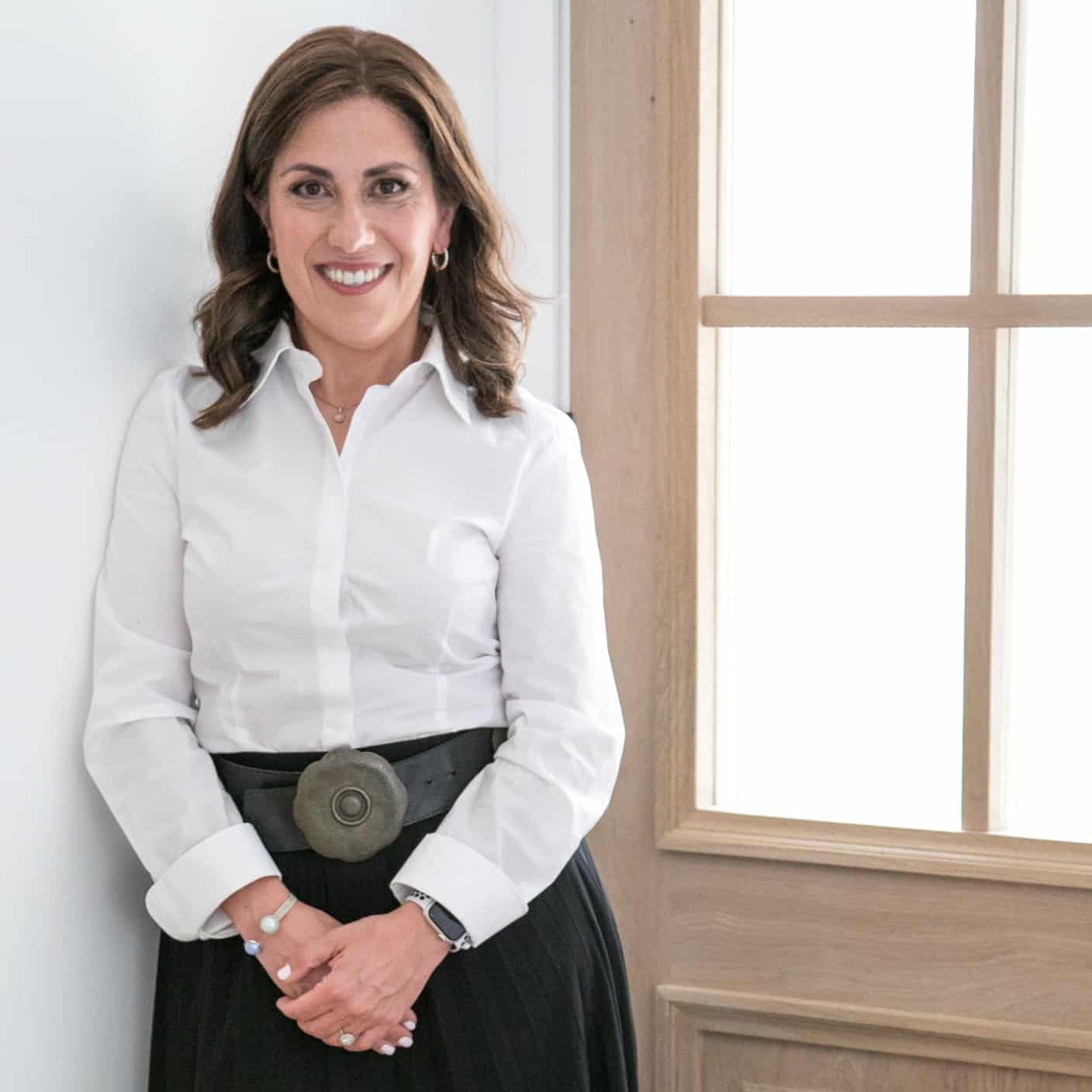
Debbie Goldfischer is the founder and CEO of Buyitinisrael and the host of the Israel Real Estate Podcast: On The House. A prominent figure in real estate since 2004, Debbie has spent two decades helping foreign buyers successfully purchase homes in Israel. Seeing a lack of reliable, English-language resources for navigating the Israeli property market, she launched Buyitinisrael.com in 2020. In addition to leading the platform, Debbie is available to personally assist you in finding the right property—whether new or resale—anywhere in Israel.
To connect with Debbie, email debbie@buyitinisrael.com.
